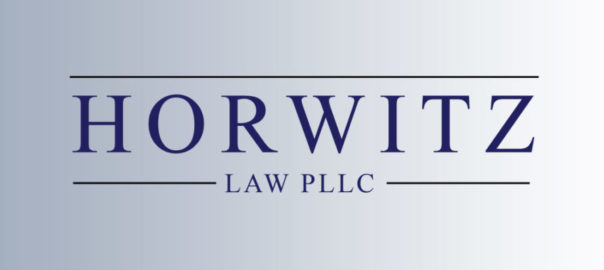Tim Easter was an unlikely candidate to become a judge for the Tennessee Court of Criminal Appeals. In his youth, while driving 54 miles per hour in a 35-mile-per-hour zone, the Williamson County jurist killed a woman on her way to church. According to Metro police officer William Bay, the skidmarks from the accident—which “stretched about 140 feet”—“indicate that he was speeding.” Nevertheless, “no charges were filed against Easter,” who was later sued in connection with the incident. In a judicial application filed by Easter decades later, he misleadingly described the wrongful death matter as an “[a]uto accident case that was settled and dismissed[.]”
It is fair to wonder whether someone who came from a less privileged background—or who looked different than Easter does—would have been prosecuted for vehicular homicide under the same circumstances. At any rate, Easter does not appear to have experienced any consequences whatsoever.
With a background like this, one might reasonably expect Judge Easter’s jurisprudence—which is limited to appeals in criminal cases—to include some measure of grace. That expectation, however, would be wrong. Quite to the contrary, Easter distinguishes himself year after year as one of Tennessee’s most aggressively graceless judges. A recent indefensible decision—which the Tennessee Supreme Court has just designated “not for citation” after considering a Horwitz Law, PLLC amicus brief urging that result—illustrates the point.
Andre Terry is serving a life sentence after being convicted at trial for serious crimes. After exhausting his direct appeal rights, Mr. Terry filed a pro se petition for post-conviction relief. Like many such petitioners, Mr. Terry overlooked a form requirement: he neglected to sign and verify his petition under oath. After Mr. Terry was appointed an attorney, that common oversight was corrected with “no objection” from the State. The parties then proceeded to hearing, and Mr. Terry was denied post-conviction relief on the merits of his claims.
On appeal, Mr. Terry asserted that he should have been granted relief, while the State asserted that relief was properly denied to him. These typical events are hardly worthy of note. What is unusual is what happened next.
Despite the State of Tennessee declining to raise any argument on the matter, the Court of Criminal Appeals sua sponte “ordered supplemental briefing” as to: (1) whether Mr. Terry’s pro se post-conviction was an incurable “nullity” because it was originally unsigned, and (2) whether the effect of being a “nullity” was to deprive the trial court of subject matter jurisdiction to adjudicate the claims presented in it. The unsigned order—which ostensibly was issued based on party-presentation rules—set out in detail the argument it wanted the State to brief. Put another way: The Court of Criminal Appeals invited and detailed an argument for the State to make that the State both had not made for itself and affirmatively waived. Afterward, Judge Easter’s opinion adopted the invited jurisdictional argument and ordered Mr. Terry’s petition dismissed for lack of subject matter jurisdiction because it was originally unverified.
To understate the matter, there are several problems with this approach:
First, rather than respecting party-presentation rules, Judge Easter violated them. As the Tennessee Supreme Court recently explained in its seminal party-presentation decision, the principle of party presentation “rests on the premise that the parties ‘know what is best for them, and are responsible for advancing the facts and argument entitling them to relief.” State v. Bristol, 654 S.W.3d 917, 923 (Tenn. 2022). Further, “in our adversarial system, the judicial role is not ‘to research or construct a litigant’s case or arguments for him or her, but rather to serve as ‘arbiters of legal questions presented and argued by the parties before them[.]’” Id. Suffice it to say that drafting an unraised argument for the State to brief, ordering the Parties to submit supplemental briefing on that argument, and then adopting the invited argument as the Court’s ruling is inconsistent with this principle. It also reasonably calls into question whether Easter, a former prosecutor, and his colleagues were acting as impartial arbiters or as advocates for a particular result.
Second, the argument that Judge Easter adopted has been rejected repeatedly by the Tennessee Court of Criminal Appeals in past cases, and it was foreclosed—at minimum—by binding Court of Criminal Appeals precedent. See Sexton v. State, 151 S.W.3d 525, 530 (Tenn. Crim. App. 2004) (“Although the comprehensive petition in the present case was not verified under oath, we do not believe the circumstances justified limiting the petitioner’s claims. . . . We conclude that the circumstances justify the petitioner’s claims being heard on their merits.”); see also Timberlake v. State, No. W2008-00037-CCA-R3-PC, 2009 WL 302294, at *2 (Tenn. Crim. App. Feb. 5, 2009) (“[t]he State, however, ignores the fact that we went on [in Sexton] to conclude that the post-conviction court should have allowed the petitioner the opportunity to verify her amended petition under oath instead of ruling it invalid due to lack of verification”). For whatever reason, though, Judge Easter’s opinion did not mention the precedent that foreclosed it along the way to changing Tennessee law in a way that precluded merits review of post-conviction claims due to a form deficiency.
Third, the argument is just wrong. There is a well-understood—and elementary—legal difference between “jurisdictional” rules (which are non-waivable and, when violated, deprive a court of authority to consider a litigant’s claim) and “claims-processing” rules (which are waivable and do not). There also are obvious reasons why the post-conviction verification requirement in question “represents a mere claims-processing rule”: a conclusion on which “virtually every court to consider the question” agrees. See Hughley v. Gov’t of Virgin Islands, 61 V.I. 323, 334–35 (2014) (collecting cases). Judge Easter’s opinion overlooked the entire concept, however, suggesting unawareness of the entire doctrine.
To understand why any of this matters, it is important to know that nearly every wrongly or unfairly convicted criminal defendant in Tennessee—including the Joseph Websters and Calvin Bryants of the world—relies on post-conviction processes for relief. Permanently foreclosing courts, on jurisdictional grounds, even from considering a defendant’s claims based on a technical form deficiency would consign such defendants to a fate where Tennessee’s courts are forever powerless to grant them relief even if courts agree their claims have merit. Initially failing to verify a post-conviction petition also is a common oversight, particularly given that post-conviction petitioners generally do not have the assistance of an attorney until after they file. Thus, Judge Easter’s opinion, if permitted to stand, would have cut off a huge number of defendants—including wrongfully convicted defendants—from court review and permanently deprived them even of the possibility of relief.
Given that our practice includes exonerating innocent clients through the post-conviction process, Horwitz Law cares about judicial efforts—like this one—to cut off our clients from receiving a hearing on their actual innocence claims. So we submitted an amicus brief detailing the severe flaws in Judge Easter’s opinion and asked the Tennessee Supreme Court to designate it non-citable. Fortunately, after considering Horwitz Law’s amicus brief on the matter, the Tennessee Supreme Court has now designated Judge Easter’s opinion “not for citation.” That uncommon designation renders it non-precedential and prevents it from causing any further mischief. Hopefully, in the future, Judge Easter won’t dangerously speed through controlling doctrine on the way to reaching a preferred destination, leaving skidmarks on the rights of the litigants whose cases he is charged with adjudicating impartially along the way.
Questions about this article? Contact the author at daniel [at] horwitz.law.
Like ScotBlog? Join our email list or contact us here, or follow along on facebook at https://www.facebook.com/scotblog.org. You can also subscribe to the author’s aspirationally weekly newsletter on the Tennessee Court of Appeals—Intermediate Scrutiny—here: https://horwitz.law/intermediate-scrutiny-blog-signup-form/

